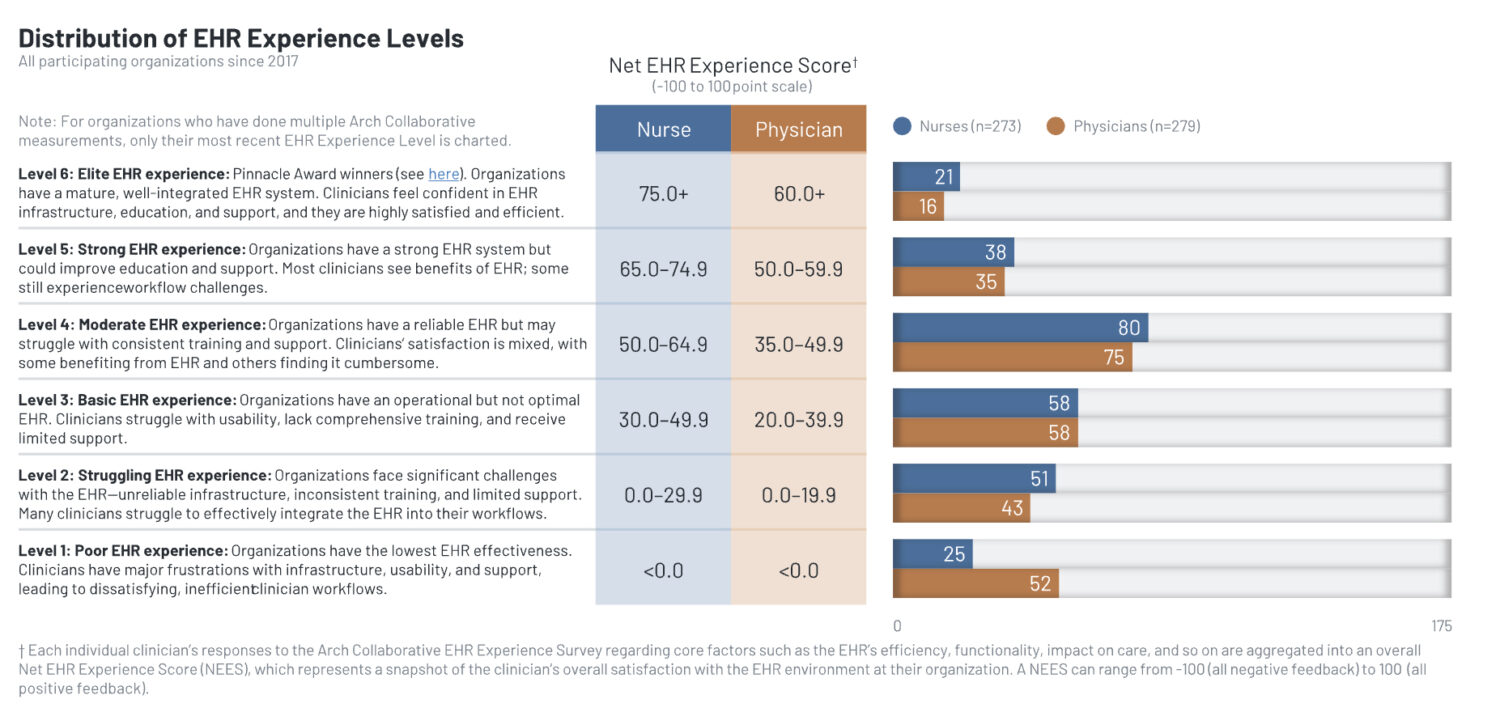
What You Should Know:
– A new 2025 impact report from the KLAS Arch Collaborative reveals that while some progress has been made, most clinicians have a mediocre experience with their electronic health record (EHR) systems. The KLAS report, “Clinician EHR Experience 2025: State of the Industry,” highlights that only a minority of clinicians have a strong or elite EHR experience, and it underscores the critical link between EHR satisfaction, organizational culture, and clinician burnout.
– As healthcare continues to grapple with a severe staffing crisis, the report emphasizes that improving the clinician experience is more urgent than ever, and a successful EHR experience is a cornerstone of that effort. The findings are based on survey data from over 600,000 clinicians across more than 300 healthcare organizations.
The EHR Experience: A Widening Gap
To better understand clinician satisfaction, the Arch Collaborative developed “EHR Experience Levels,” ranging from Level 1 (Poor) to Level 6 (Elite). The data shows a significant gap between the best and worst experiences:
- Only 22% of nurses and 18% of physicians report a strong (Level 5) or elite (Level 6) EHR experience.
- The majority of organizations are stuck at a moderate EHR experience (Level 4), struggling to break through to higher levels of satisfaction.
- Post-COVID, the percentage of physicians reporting an elite experience has doubled from 3% to 6%, but the overall distribution shows that a poor or basic experience is still more common than an elite one.
AI and User Interfaces Show Promise
The report identifies several key areas where clinicians have seen tangible improvements in their EHR experience over the past 12 months.
- For Physicians: Ambient Speech Technology has been a game-changer, significantly reducing documentation time and improving quality of life.
- For Nurses & Physicians: Enhanced User Interfaces with cleaner layouts and easier navigation have helped clinicians find data and complete tasks more quickly.
- For Nurses & Physicians: Secure Messaging tools within the EHR have improved real-time communication, collaboration, and care coordination among care teams.
What’s Stuck? Documentation, Messaging Burden, and Interoperability Persist
Despite some gains, several major challenges continue to plague the clinician EHR experience.
- Documentation Burden for Nurses: This remains the number-one requested EHR fix for nurses, with 35% spending three or more hours per week on unproductive or duplicative charting.
- Message Burden for Physicians: Nearly half of ambulatory physicians (47%) report an excessive message volume from patient portals, a number that is projected to grow.
- Interoperability: Clinicians remain least satisfied with the EHR’s ability to integrate with outside organizations. Physicians frequently cite the difficulty in accessing and leveraging external patient data as a top frustration.
- Slow Response Time: A hidden but significant issue is slow EHR response time. For 80% of organizations measured, less than 70% of clinicians agree that their EHR has a fast response time, a problem that frustrates all other aspects of their experience.
Importance of Establishing Strong Organizational Culture
The report makes a strong case that achieving an elite EHR experience (Level 6) is not about the technology alone, but is deeply rooted in organizational culture and leadership.
Organizations that have achieved the highest satisfaction levels—the “Pinnacle Award Winners”—demonstrate several common traits:
- They move from an “us versus them” mentality to a shared “we” that includes leaders and clinicians.
- They prioritize and validate clinician voices, making them critical stakeholders in EHR decision-making.
- They foster a culture of shared ownership and collaboration between IT and clinical teams.
The report reveals a direct correlation: clinicians who are dissatisfied with their organization’s leadership or IT are almost twice as likely to plan to leave their organization within the next two years.
